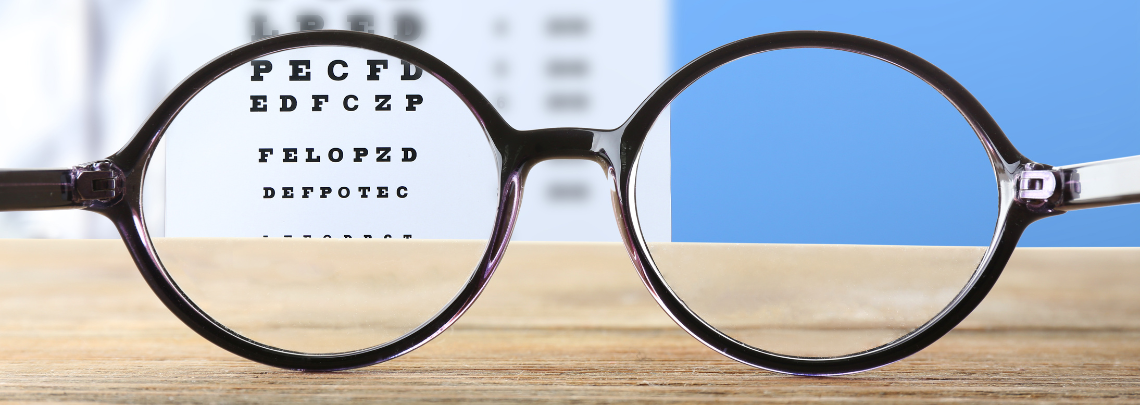9 ways to improve your eyesight
There are many ways you can optimise your eye health through simple lifestyle and behaviour changes. Our eyes and visual system are connected to our body and brain and benefit from healthy habits and a positive mindset.
My suggestions for maintaining healthy eyes:
-
Stop Smoking
Smoking can cause cataracts, macular disease, dry eyes and can damage your optic nerve. Each day you don’t smoke will reduce inflammation and blood vessel damage through your body and the delicate blood vessels in the eye.
-
Eat your greens – and reds and yellows and purples
Eat dark green leafy vegetables like kale and spinach as they are abundant in nutrients known to prevent age-related macular disease. Colourful pigments here help protect the macula by improving pigment density, which helps absorbs UV and toxic blue light. Micro-nutrients like vitamins A, C, E and Zinc are also beneficial for good eye health and it’s best to get these directly from your diet from whole unprocessed foods. Eat a variety of fresh organic deeply-coloured vegetables and fruit like berries, broccoli, brussel sprouts, carrots, sweet potato, pumpkin, corn, tomatoes, citrus foods, green leafy vegetables and also eggs. Foods rich in omega-3 like flaxseed oil and nuts and seeds can also support good eye health. Avoid added sugar, seed oils, refined carbohydrates and stay hydrated.
-
Exercise regularly
Regular exercise like walking 3 or more times a week and maintaining a healthy weight are great for general health and eye health. Exercise helps circulation, reduces blood pressure, lowers blood pressure, helps heart health, reduces stress, assists sleep and reduces muscle tension. It has been shown to help cataracts, glaucoma and macular disease.
Exercise and a healthy diet also reduce the risk of developing type 2 diabetes by maintaing stable blood sugar levels, which can lead to less risk of sight-threatening complications.
-
Manage chronic health conditions.
Managing conditions like heart disease, high blood pressure, allergies, neurological conditions multiple sclerosis and inflammatory conditions will have a flow-on effect on your eye health.
-
Exercise your eyes
Eye exercises can help keep your eyes stay healthy, feel more comfortable and focus better. Some exercises to try – make sure you are breathing and relaxed. Allow yourself the time and find a quiet space:
- Palming – Close your eyes, take a few deep breaths and clear your mind of all thoughts. Rub your hands together to generate some warmth then cover your eyes with your palms and block all light. Visualise and emphasise the blackness, breathing into it. This is great for relaxing your eyes, body and mind.
- Flexing– Hold some print at arm’s length in front of your face and focus on some words. Slowly move the print towards your nose and back again, going back and forth, continuing to focus on same words. You can do with each eye separately then both eyes together.
- Figure eight– Imagine a sideways figure eight in front of you in space. Slowly trace the imaginary figure eight with your eyes, moving your head and neck and keep repeating. Try with eyes open, eyes closed and visualising. Make it big, make it small!
- Roll your eyes up and down 3 or 4 times, then left and right, then in both diagonal directions, finishing with circling in one direction then the other. Keep your shoulders low and relaxed, remember to breathe!
- Near and far focus– Focus on your finger 20cm in front of you then switch your focus to a distant object across the room, then back to your finger. Keep repeating.
- Loosen your neck by moving it slowly from left to right a few times then up and down, to increase blood circulation to your neck and eyes and loosen muscles.
- Blinking – For resting the eyes, changing focus and lubrication, do 20 slow and light blinks then rest with eyes closed then repeat. Occasional squeeze blinking can also help
-
Use the 20-20-20 rule
Give your eyes a break! Every 20 minutes look away from your computer screen and focus on something 20 feet away for 20 seconds. If you are working long hours on screens, I do recommend even more frequent breaks and longer rests. Change your visual activities regularly. Balance your close work with being outdoors and looking longer distances – take your lunch break outside under the sun! Relax at the end of a busy day with music, walking, yoga or any activities you enjoy and make you happy.
-
Avoid excessive use of digital devices
Try and limit excessive use of computers, tablets and mobile phones. Toxic blue light exposure, especially in the evening can affect your general health, mental health, body clock and sleep. Blue light has been linked to eye fatigue, dry eyes, cataracts and macular degeneration. Try and have the blue light filter/night mode on always and reduce the intensity of the screen. Keep all screens further away from your face and eyes.
-
Get enough shut-eye
Your body and brain need an optimal 7 to 9 hours of good quality uninterrupted sleep for rest and repair. Getting enough sleep is also critical for your eye health. Your eyes will function better the more rested you are. Poor sleep can lead to tired eyes, dry eyes and difficulty in focussing.
-
Have an eye test every year
Having regular eye tests to screen for eye disease is important. Eye conditions are best treated when diagnosed early. Test earlier if you have any change in symptoms or eyesight. Prevention is the best cure!
Jenny Livanos is a holistic optometrist and nutritionist who consults in Concord, Sydney and is available for online and phone consultations (www.naturaleyecare.com.au) Email: [email protected]
